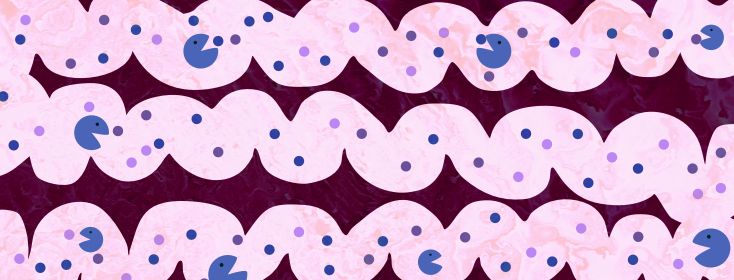Do Prebiotics Help or Hinder IBS?
Probiotics are well known for their role in gut health, but lesser known and understood are prebiotics. Prebiotics can be confusing for people suffering from IBS, as many prebiotic containing foods are fermentable fibers that may make symptoms worse.1
However, prebiotics can be beneficial to overall health and gut health, even for people with IBS. Therefore, it is important to consider how to incorporate them into the diet.1
How do prebiotics differ from probiotics?
The International Scientific Association for Probiotics and Prebiotics defines prebiotics as “a substrate that is selectively utilized by host microorganisms conferring a health benefit.” Previously, it was thought that prebiotics were only carbohydrate-based fiber. But with the most recent definition, other substrates such as polyphenols and conjugated fatty acids might also be considered prebiotic.2
Both probiotics and prebiotics must show evidence of health benefits to fit into the definition. Probiotics are the live microorganisms, whereas prebiotics are the substrates utilized by the microorganisms. In other words, prebiotics are the fuel for probiotics. Eating prebiotics and probiotics together is known as synbiotics, and is likely to maximize benefits.2
What are the benefits of prebiotics?
In people with IBS, the intestinal levels of bifidobacetria are much lower compared to healthy subjects. Human trials using prebiotics have shown significant increases in intestinal levels of bifidobacteria. Therefore, it is thought that prebiotics could help in the management of IBS.3,4
While there are limited studies in this area, the current research has shown a reduction in the incidence of symptoms such as flatulence and bloating with use of moderate amounts of prebiotics.4
Prebiotics are also being studied for their role in a number of other health outcomes beyond the gut. Current evidence supports the role of prebiotics in enhanced mineral absorption, colon cancer risk reduction, and immune modulation.3,4
What foods contain prebiotics?
Currently, most well-known prebiotics are fermentable carbohydrates including oligosaccharides, inulin, fructans, and galactans. Including a variety of prebiotic-containing foods into the diet can help promote a diverse gut microbiome.1
Common food sources of prebiotic carbohydrates include:1
- Garlic
- Onion
- Wheat
- Barley
- Oats
- Artichoke
- Chicory root (inulin)
- Banana
- Beans
- Asparagus
- Leeks
What about FODMAPS?
If you are familiar with the low FODMAP diet, often used as medical nutrition therapy for people with IBS, you may recognize that most prebiotics are also FODMAPs. These fermentable carbohydrates are restricted on the low FODMAP diet to provide symptom relief to people with IBS.5
However, the low FODMAP diet is meant only as a short-term intervention and is followed by strategic reintroduction of FODMAP-containing foods. Continual restriction of FODMAPs can actually be detrimental to gut health as it restricts multiple fiber sources and prebiotics, which feed the gut bacteria.5
So while prebiotic foods may be restricted for a limited period of time, their addition back into the diet (in tolerated amounts) is part of ongoing IBS management and important for other aspects of our health.5
Individuals will differ in their tolerance to prebiotic-containing foods and amounts. Working with a dietitian will help you understand your level of tolerance and how to incorporate prebiotics into your diet for gut health without triggering symptoms.

Join the conversation